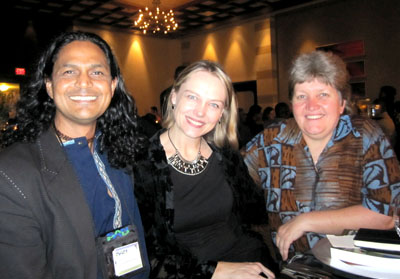Latest News Archive
Please select Category, Year, and then Month to display items
12 January 2024
|
Story Nonsindiswe Qwabe
|
Photo Sonia Small
 Since joining the UFS in 2008, Dr Grey Magaiza has worked extensively on approaches that can foster the socio-economic transformation of societies.
Since joining the UFS in 2008, Dr Grey Magaiza has worked extensively on approaches that can foster the socio-economic transformation of societies.
“The future should be one where communities can decide on their development agenda and futures. That’s the most important for me.” Dr Grey Magaiza, Deputy Director of the Centre for Gender and Africa Studies (CGAS) and Head of the Community Development programme on the Qwaqwa Campus, is passionate about capacitating communities to be agents of change and advancement. His vision for the future emphasises the empowerment of communities to take charge of their development by actively participating in decision making and the implementation of development projects that can improve their lives.
Since joining the UFS in 2008, Dr Magaiza has worked extensively on approaches that can foster the socio-economic transformation of societies. Over the years, he has crafted his research speciality into one that he is most proud of – being an interdisciplinary scientist immersed in the development of communities.
“I’m in a fortunate position of researching what I like. I say ‘fortunate’, because I’ve taken the time to understand what I’m passionate about, which is the overall field of rural livelihoods and livelihood futures – in short, community development. My research starts from an engaged university, understanding the elements that a university must use to enhance transformation and relevance to its immediate community in terms of development.”
One of the ways he has done this is by looking at social entrepreneurship as a development approach for young people in a rural setting. Through workshops with non-profit and civic organisations in Qwaqwa, Dr Magaiza has been helping these organisations to map out their needs and actively meet them through the involvement and support of external role players.
“We understand that communities are part of the national development agenda, but even that national agenda respects community knowledge and intentions and allows communities to shape their identity. A critical enabler of this is community organising. You bring back the capacity in communities to have dialogues on issues affecting them as spaces for engagement, knowledge exchange, and for people to just talk about their way forward.”
By enabling communities to define their development agenda, they can address their specific needs, challenges, and aspirations, he said. “When I look at livelihood futures, it’s quite an exciting aspect of my work – it’s like looking into a fortune tellers’ globe, because you’re not deciding for communities what they should do, but the communities themselves take those decisions.”
UFS academic completes SANPAD course
2010-09-09
 |
|
Mrs Tania Rauch-Van der Merwe of the University of the Free State completed the 2009-2010 South Africa-Netherlands Research Programme on Alternatives in Development (SANPAD) Research Capacity Initiative (RCI) on 3 September 2010. The programme entailed six modules over a seven-week period that was distributed over the course of one year. The RCI programme aims to prepare prospective Ph.D. students to successfully plan and perform their studies with the knowledge and exposure to a wide landscape of research methodologies within their respective fields and to complete the study within a reasonable time frame. Prof. Dennis Francis, Dean of the Faculty of Education, will supervise Mrs Rauch-Van der Merwe in her Ph.D. study pertaining to education for social justice and Prof. Theresa Lorenzo will be the co-supervisor. Pictured from the left, are: Prof. Francis (Dean: Faculty of Education), Mrs Rauch-Van der Merwe (Lecturer: Department of Occupational Therapy) and Prof. Lorenzo (Division Head: Disability Studies and Occupational Therapy, University of Cape Town).
Photo: Supplied
|